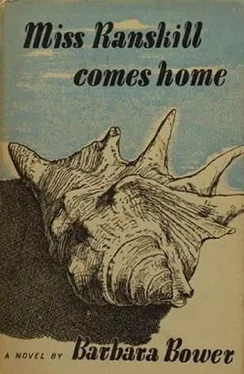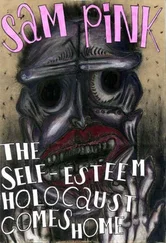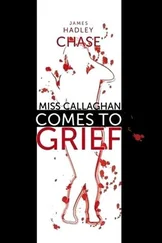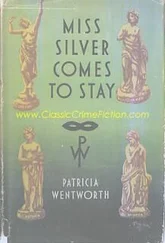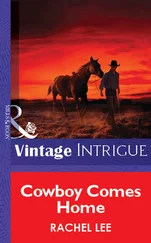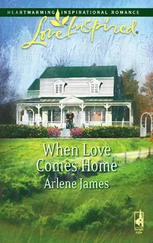‘I don’t know,’ continued Edith. ‘I don’t know if we could let the house again. You’d better talk to the agent about that. The first thing to do is to see that everything’s all right –’
‘Couldn’t we go back and live there?’ asked Miss Ranskill.
‘It’s too big, and it’s too expensive to run, as things are just now. Besides, I couldn’t suddenly throw over all my work in this village even if I could break my agreement with Phillipa. Do get a pencil, Nona.’
Miss Ranskill got a pencil.
For a quarter of an hour she used it dutifully, writing down details about sheets and blankets, china and kitchen utensils.
Ordinarily, she would have been bored, but now her mind was absorbed by household matters. It was important, of course it was, to make sure that the linen for all the beds was in order. She did not speak of what was in her mind until quite late in the afternoon, until the telegram had been sent and answered, trains looked up, and a woman from the village bribed to ‘oblige’ for two or three hours for the next few mornings, so as ‘to do for’ the elder Miss Ranskill.
Then, when Edith, who was feeling a shade better, was sipping Bovril, her sister made an announcement.
‘I’ve been thinking.’
‘So have I, all the afternoon.’
‘I’ve been thinking there isn’t room for me here and there is room there . I could look after that garden, our garden, instead of this one. You know I believe the kitchen garden could be made quite profitable. I could grow vegetables.’
‘But you couldn’t do the house and garden. And think of the expense of heating and lighting just for one.’
‘I didn’t mean just for one. I thought I could take in lodgers.’
‘ Lodgers! ’ The horror in Edith’s voice was ended by a sneeze.
‘Lodgers!’
‘Babies,’ said Miss Ranskill. If Edith wished the conversation to be a series of single words she could play the same game.
‘Babies?’
‘Mothers.’
‘Nona! But think of the house overrun with babies. And whose babies? You don’t know any babies.’
Miss Ranskill took the questions and objections in turn, beginning with the last one.
‘I could know some babies quite easily. They’d be officers’ wives’ babies. And babies don’t run at first: they couldn’t overrun the house. Besides, some of the lodgers–’
‘I do wish you wouldn’t keep on using that word.’
‘Well, then some of my guests wouldn’t even be born. Even you can’t think that unborn babies could damage a house: they’re completely self-contained.’
‘Nona!’
‘Well, aren’t they?’
‘I don’t understand. Officers’ wives’ babies?’
But Edith’s voice, so her sister noticed, was not quite so horror-stricken as it had been. The word officer overpowered lodger .
Miss Ranskill repeated some of the conversation in the harvest-field on the day when she had met Lucy Mallison for the second time.
She concluded, ‘You’ve only to look at the advertisements in the agony columns to see how many mothers are homeless. They’re taking any sort of jobs – going out as cooks and matrons and helps so that they can keep their children with them.’
‘But think of the work? ’
‘There wouldn’t be much work if they did their own rooms and took it in turns to do the cooking. They’d pay a reasonable amount. I could have three mothers and the husbands could come down for leaves. I don’t see why not.’
‘Well,’ Edith was weakening. ‘I suppose you could try . It would be better than having the house empty, I suppose. And now that Martin’s coming down on this indefinite sick-leave – you could try it till Doctor Fenton lets you do some proper war-work.’
‘Isn’t it war-work,’ said Miss Ranskill, ‘isn’t it war-work to make it possible for the next generation to be born and to have somewhere to go when they are born?’
CHAPTER EIGHTEEN

I
The walnut tree had finished work for the year, and now its sap was seeping downwards. The last of the leaves, their life-current withdrawn, clung listlessly to the branches or allowed the air to drift them down to settle and whisper among their more impetuous fellows.
‘That’s that! That’s that!’ remarked the very last of the nuts as their shells rapped the gravel, and wakened Miss Ranskill.
The air of her bedroom was moist with the heavy breath of autumn: it carried little whiffs of damp leaves, the scent of late violets, the stable smell of chrysanthemums and little hints from roses that had almost outworn their fragrance. The air also carried excitement with it, and, for a moment or two, she lay with closed eyes, postponing the moment of actual parting from sleep and return, by morning light, to the house she had left all those years ago.
There was still a little hump in that part of the mattress that met her right shoulder-blade. The bed creaked as she stretched out her legs – that was because the worn hollow in the floor-board had never been repaired.
She turned her head. Should she open her eyes now and let the mirror on the gate-legged dressing-table be her first welcomer or should she turn to the open window and the walnut tree where a robin (surely the descendant of cheekier and Ranskill-tamed robins) was singing?
The mirror had held all her changing portraits from childhood to middle-age. From its breath-smudged surface another blue-overalled child had grimaced back, in perfect timing, as Nona Ranskill had contorted her own features. Its little girl had grown smaller and had also backed towards the door – the door that led to goodness-knew-where, step by step as Nona had backed towards the door that only opened on to the familiar landing. She had never been able to catch out the mirror’s child who mocked each movement, slow or fast, jerky or surreptitious, whose features followed hers (she knew by the feel) making simpering or hideous or pathetic ‘faces’.
She had worked very hard, after reading Through the Looking-Glass , to make friends with the other child who, at times, looked wistfully back, as though she too wanted to play and to take Nona through that other door that led into the enchanted house where the dear feckless White Queen fiddled with her rakish crown, the Red Queen bossed, and the Sheep used fourteen pairs of knitting-needles at once.
She had tried every method. She had even held up the black kitten, but the other child had produced a Dinah’s daughter too; and each little creature had patted the mirror, prettily, but in vain.
There was a red-brown mark on the right-hand corner of the mirror. It stood as perpetual memorial to the day when Nona Ranskill had used scissors and pliers to remove the wooden backing, and had then scraped at the paint in order to discover if any magic lay between it and the glass.
She had been sent to bed for what the governess described as a ‘piece of wanton destruction that a big girl ought to be ashamed of.’ What had that mattered? The other little girl had been sent to bed too, and the pliers and scissors lying on her carpet had proved that she had wanted to break through from Looking Glass Land in order to play with Nona.
Yes, the mirror was a very old friend and had been quite kind at times when the light was rather dim, though it had been more brutally frank even than her sister Edith, during the half hours she had prepared herself for parties.
So Miss Ranskill turned towards the window and opened her eyes to the tree, whose branches had thickened since last she had looked at them.
Читать дальше
